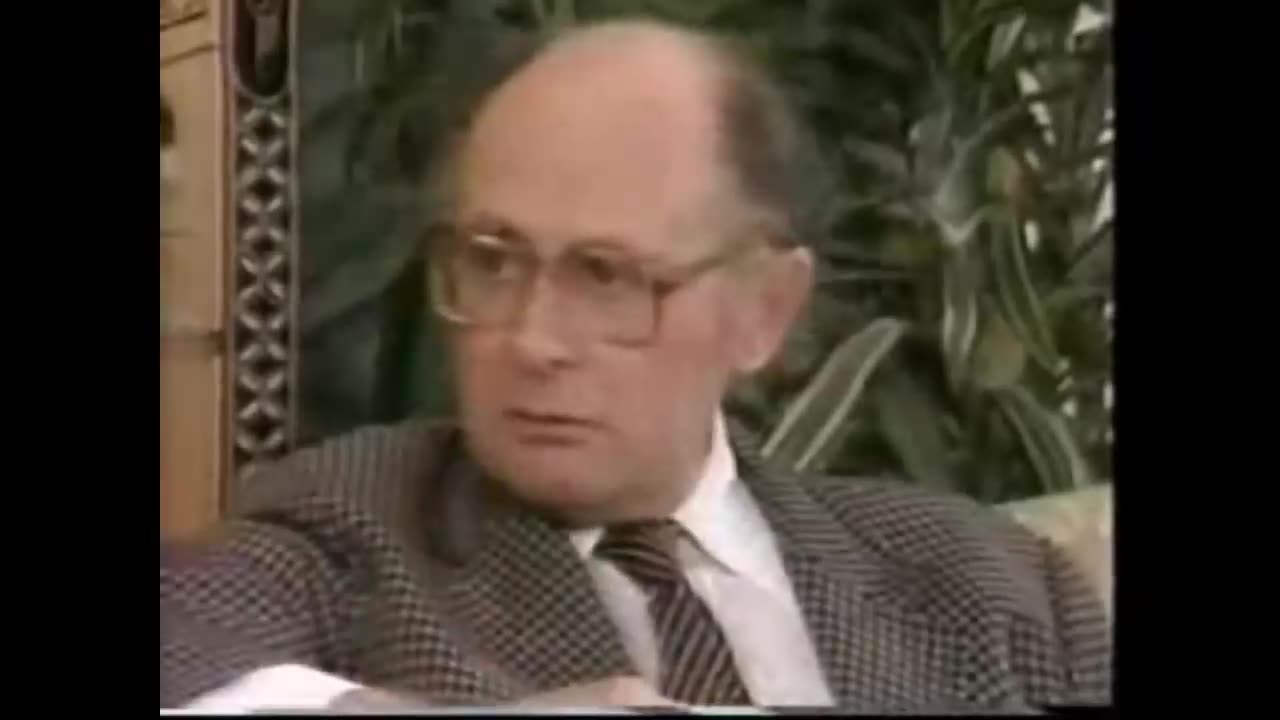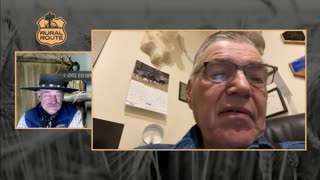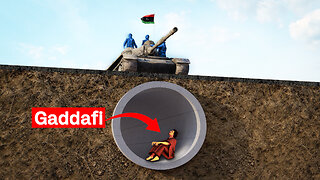Premium Only Content

Antony Sutton Interviews 1973-1987
Sutton became an economics professor at California State University, Los Angeles. He had a research fellowship at Stanford University's Hoover Institution on War, Revolution, and Peace from 1968 to 1973.
At the Hoover Institution, he wrote the study Western Technology and Soviet Economic Development (in three volumes), arguing that the West played a major role in developing the Soviet Union from its beginnings until the then-present year of 1970. Sutton argued that the Soviet Union's technological and manufacturing base, which was then engaged in supplying North Vietnam during the Vietnam War, was built by United States corporations and largely funded by US taxpayers.
Steel and iron plants, the GAZ automobile factory, a Ford subsidiary in eastern Russia, and many other Soviet industrial enterprises were built with the help or technical assistance of the United States government or US corporations. He argued further that the Soviet Union's acquisition of MIRV technology was made possible by receiving (from US sources) machining equipment for the manufacture of precision ball bearings, necessary to mass-produce MIRV-enabled missiles.
He contributed articles to Human Events, Review of the News, Triumph, Ordnance, The Proceedings, and other journals
In early 1972, U.S. Senator John Tunney received an inquiry from Sutton regarding the rumor that Zhou Enlai was involved in the murder of a family of six in the 1930s.
In 1973, Sutton published a popularized, condensed version of the sections of the forthcoming third volume relevant to military technology called National Suicide: Military Aid to the Soviet Union, after which he was forced out of the Hoover Institution.
His conclusion from his research on the issue was that the conflicts of the Cold War were “not fought to restrain communism” but were organized in order “to generate multibillion-dollar armaments contracts”, since the United States, through financing the Soviet Union “directly or indirectly, armed both sides in at least Korea and Vietnam.”
The update to the text, The Best Enemy Money Can Buy, looked at the role of military technology transfers up to the 1980s.
Sutton's next three published books (Wall Street and the Bolshevik Revolution, Wall Street and FDR and Wall Street and the Rise of Hitler) detailed Wall Street's involvement in the Bolshevik Revolution to destroy Russia as an economic competitor and turn it into “a captive market and a technical colony to be exploited by a few high-powered American financiers and the corporations under their control” as well as its decisive contributions to the rise of Adolf Hitler and Franklin Delano Roosevelt, whose policies he assessed as being essentially the same “corporate socialism,” planned by the big corporations.
Sutton concluded that it was all part of the economic power elites' “long-range program of nurturing collectivism” and fostering “corporate socialism” in order to ensure “monopoly acquisition of wealth” because it “would fade away if it were exposed to the activity of a free market.”
In his view, the only solution to prevent such abuse in the future was that “a majority of individuals declares or acts as if it wants nothing from government, declares it will look after its own welfare and interests” or, specifically, if “a majority finds the moral courage and the internal fortitude to reject the something-for-nothing con game and replace it by voluntary associations, voluntary communes, or local rule and decentralized societies.”
-
 LIVE
LIVE
The Bubba Army
2 days agoShould RaJa Jackson Be Arrested? - Bubba the Love Sponge® Show | 8/25/25
2,443 watching -
 LIVE
LIVE
FyrBorne
14 hours ago🔴Warzone M&K Sniping: Builds So Strong They Think I'm Hacking
341 watching -
 LIVE
LIVE
BEK TV
2 days agoTrent Loos in the Morning - 8/25/2025
1,016 watching -
 4:23
4:23
Blackstone Griddles
16 hours agoEasy Salmon Dinner on the Blackstone Griddle
36K1 -
 8:10
8:10
WhaddoYouMeme
1 day ago $0.08 earnedChristians, Before You See “Testament”, Watch this!
13.5K5 -
 8:42
8:42
Freedom Frontline
15 hours agoDurbin’s Trump Smear Video Just HUMILIATED Him in the Senate
20K6 -
 10:56
10:56
ariellescarcella
13 hours agoThe Shocking Divide Among College Voters Sparks Worry For America
7.57K7 -
 13:09
13:09
Forrest Galante
11 hours agoWildlife Expert Reacts To Deadly Australian Animal TikToks
64.7K10 -
 12:08
12:08
Zoufry
2 days agoThe Mystery of Gaddafi's Final 24 Hours
21.8K15 -
 18:25
18:25
Liberty Hangout
13 days agoAnti-Ice Demonstrators Love Poop!
57.2K73